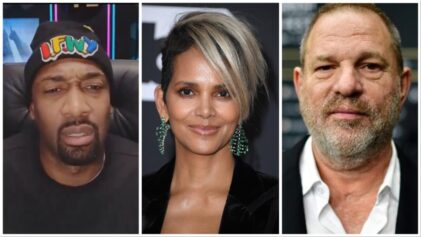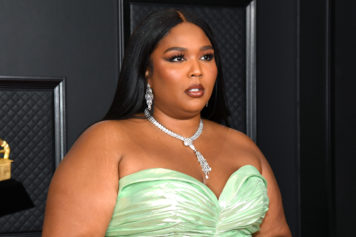Across the nation, the fallout from the Harvey Weinstein scandal has created a cathartic moment where women are sharing their experiences of being subjected to workplace sexual harassment. The Weinstein scandal — which started shortly after The New York Times reported about allegations of sexual harassment, sexual assault, and rape charges against the Academy Award-winning producer by more than 60 women has now become a litmus test of sorts on why more people who knew about Weinstein’s behavior did not speak out sooner.
As of 2015, one in three women aged 18 to 34 has been sexually harassed at work, per a survey by Cosmopolitan. According to the United States Equal Employment Opportunity Commission, 52 percent of all workplace sexual harassment allegations were dismissed in 2015 on grounds of “no reasonable cause to believe that discrimination occurred.” In 2015, the EEOC investigated 6,822 sexual harassment cases, with only 25 percent receiving “positive” results, including negotiated settlements, successful conciliations, and unsuccessful conciliations where the claimant’s allegations were sustained but no remedy was offered.
However, a 2013 YouGov/Huffington Post poll establishes that the 2015 numbers only represent about 28 percent of all American women that are sexually harassed at work per year. In an era where a number of big names — including Weinstein, Bill Cosby, and Roger Ailes, among others — have been tarnished by allegations of workplace sexual misconduct, the realities of how women are treated by society are being drawn in clear terms.
Per a United Nations report, 83 percent of girls aged 12 to 16 experience some level of sexual harassment in public schools in the United States. For example, “Women aged 15-44 are more at risk from rape and domestic violence than from cancer, car accidents, war and malaria,” the report reads.
Despite the increased publicity recently raised about workplace sexual harassment, there is a group that has been historically ignored in this conversation. “I almost hate to talk about this, but, yes, Black women, even as children, are seen as more sexually advanced and available,” Monique Lewis, the owner of ML Management, told Atlanta Black Star. Lewis, an African-American woman, endured workplace sexual harassment while working in a hotel. “Couple that with a body that may develop more prominently, and you’ve formed the perfect storm for Black women not only to be more susceptible to sexual harassment in all forms but also to being silenced by a society that doesn’t care.”
With African-American women, the intersection of racism and sexism creates an environment where exploitation is not only common but — in some cases — has been seen as being the cost of working.
#MeToo
When the actress Alyssa Milano started the Twitter hashtag #metoo, it was with the understanding that sexual harassment in this society is a pandemic that affects more than those that work for the rich and famous.
The #metoo movement was actually founded ten years ago and intended to highlight these issues among Black and other women of color who are far too often left out of the conversation in mainstream media. Milano’s subsequent tweets highlighted the origins of the #meetoo movement and its founder activist Tarana Burke to unify victims of sexual harassment into one loud voice.
“It wasn’t built to be a viral campaign or a hashtag that is here today and forgotten tomorrow,” Burke told Ebony. “It was a catchphrase to be used from survivor to survivor to let folks know that they were not alone and that a movement for radical healing was happening and possible.”
African-American women — along with African-Americans in general — are outside of the circles of power, to the point that they are actively ignored. “Where was the boycott for ESPN sports journalist Jemele Hill when her employer suspended her from her job citing a vague social media policy?” activist Ashley C. Ford mused in an essay for Refinery29 about the potential Twitter protest over Rose McGowan’s temporary suspension from the platform. McGowan, who was suspended because of posts she shared about sexual harassment, would separate herself from any larger movement by saying she is only discussing her own experiences.
“Where was the boycott when actress and comedian Leslie Jones was harassed by trolls to the point of deleting her account for months? Why is there never a boycott of platforms attached to the mistreatment or outright abuse of the women of color who consistently speak up for all of us?”
“Ain’t I a Woman?”
In 1989, legal scholar Kimberlé Crenshaw theorized the concept of “intersectionality,” or the notion that African-American women — due to simultaneously being subjected to different forms of oppression: classism, sexism, and racism — experience societal trauma that can neither be easily empathized with nor remedied.
Crenshaw analogized this as being involved in a traffic intersection crash: “Consider an analogy to traffic in an intersection, coming and going in all four directions,” Crenshaw wrote in her essay “Demarginalizing the Intersection of Race and Sex: A Black Feminist Critique of Antidiscrimination Doctrine, Feminist Theory and Antiracist Politics.”
“Discrimination, like traffic through an intersection, may flow in one direction, and it may flow in another. If an accident happens in an intersection, it can be caused by cars traveling from any number of directions and, sometimes, from all of them. Similarly, if a Black woman is harmed because she is in an intersection, her injury could result from sex discrimination or race discrimination. But it is not always easy to reconstruct an accident: sometimes the skid marks and the injuries simply indicate that they occurred simultaneously, frustrating efforts to determine which driver caused the harm.”
This interplay of factors can make it difficult to say if workplace sexual harassment against Black women is primarily racial, sexual, or classist. Racial components often take the form of some — even among the African-American community — arguing incidents should not be publicized, particularly if between a Black man and Black woman, because it makes all Black people look bad. The sexist element features those that are more comfortable blaming the victim or dismissing incidents as “boys being boys.” In the classist dynamic, some will accept and tolerate the victimization of sexual harassment targets in order to preserve the status quo.
African-American women can face any or all of these at the same time, making a harassment situation acute. Yet, it must be a situation that must be addressed. As Sojourner Truth said in her 1851 “Ain’t I a Woman?” speech at the Women’s Convention in Akron, Ohio:
“That man over there says that women need to be helped into carriages and lifted over ditches, and to have the best place everywhere. Nobody ever helps me into carriages, or over mud-puddles, or gives me any best place! And ain’t I a woman? Look at me! Look at my arm! I could have ploughed and planted, and gathered into barns, and no man could head me! And ain’t I a woman? I could work as much and eat as much as a man — when I could get it — and bear the lash as well! And ain’t I a woman? I have borne thirteen children, and seen them most all sold off to slavery, and when I cried out with my mother’s grief, none but Jesus heard me! And ain’t I a woman?”
A Woman’s Work
M. Reese Everson, Esq. is the author of “The B.A.B.E.S. Guide to Winning in the Workplace: You Don’t Have to Compromise.” Early in her career, Everson served as a Capitol Hill aide to an African-American representative who demanded sexual favors.
“Black women have a long-held history of being viewed as property in this country,” Everson said to Atlanta Black Star. “Black women are being seen as something that is less than, and because of that, I think that when they ascend into places where there’s power, they’re seen as very low in that power dynamic and have very little recourse. It is read that ‘you’re here because of a program that we created so that you could be here in the first place — affirmative action or whatever those type of stories are. So, you’re welcome to be here and because this is not a place that was created for use by you, you don’t have the same rights and protections as everyone else do.’ And for that reason, you being able to speak up is less likely.”
Everson argues that power in this country is monolithic and is largely focused within white men. The cost of finding agency in this system tends to mean challenging the system. Even with African-American men in power, Black women must contend with the notion that those in power may choose to defend that power and their position by ignoring the plight of the exploited, which includes Black women.
“It is funny how you find yourself taking on the mindset of the oppressor,” Monique Lewis said, referencing the Cosby sexual harassment case. “You don’t want to, you fight against it, but unless you make a conscious effort not to do that, you are going to do that. I even find myself doing that; for example, with the Cosby case, I found myself wondering why the accusers waited so long, why are they coming out now? The reports about possible false allegations made it even easier for me to side with Cosby.
“We do have a society that allows sexual harassment to go on. It’s akin to crabs in a barrel; if there is some ideology or construct that will get you above the person next to you, you will probably adapt to it, and you really have to make an effort not to do this. This is so sad because the ones that tend to get stepped on are Black women.”
“Despite this, we have developed an attitude that no one will believe our plight; this is our private burden to bear. For the sake of our young girls, this must change.”
A War on Womankind
Mary Kaarto is a former editor and the author of “HOPE for the LAID OFF” who is white, shared her story with Atlanta Black Star with the hope of pointing out that sexual harassment is not so much a matter of race, but the denial of humanity. Kaarto — prior to transitioning to journalism — worked for an engineering firm. During a company-hosted golf tournament, a drunken co-worker loudly sexually propositioned Kaarto. Instead of punishing the offender, Kaarto’s position was eliminated.
This is despite Kaarto having a recorder on in her purse, with which she recorded the entire event.
“I was very young but it was the most shameful thing,” Kaarto recalled. “And like all women that go through this, it was like ‘OK, what did I do to deserve that? Did I say something that deserved that? Was I dressed inappropriately?’”
The venerable Shirley Chisholm once said, “The emotional, sexual, and psychological stereotyping of females begins when the doctor says, ‘It’s a girl.’” The unpleasant truth about the American situation is that it allows for the declaration of “winners” and “losers.” This country has shown — through wage inequality, through violence, through the lack of political agency — that it sees women as one of those “losers.” The notion that it takes a celebrity being accused of sexual harassment to get society to talk about this problem is bad enough.


